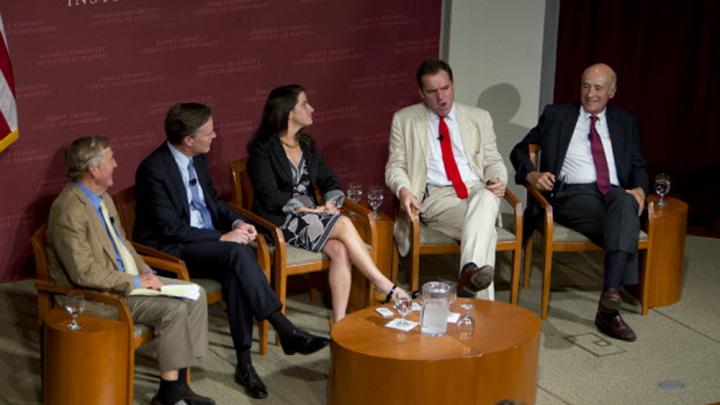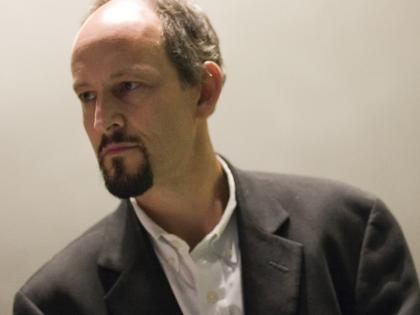Whether or not to take military action in Syria was the debate topic at Harvard Kennedy School (HKS) on September 11 as a panel of faculty specialists—including Oman professor of international relations R. Nicholas Burns, Tisch professor of history Niall Ferguson, Distinguished Service Professor and former dean Joseph S. Nye Jr., and international security program fellow Marisa L. Porges—discussed President Barack Obama’s proposal to take military action in Syria following that government’s use of chemical weapons to kill hundreds of civilians.
The evening’s moderator, former HKS dean Graham T. Allison, asked each participant to explain how they would vote if they were members of Congress. (The day before, Obama had asked Congress to postpone a vote on the issue after the Russian government offered to destroy the Syrian government’s chemical arsenal; on September 12, Secretary of State John F. Kerry arrived in Geneva for talks with his Russian counterpart on a possible deal to impound those weapons and avert a U.S. military strike on Damascus, according the Los Angeles Times.)
Burns said he would vote to support Obama’s policy, but warned that airstrikes alone would not constitute a coherent strategy. If the United States is “out of the regime-change business,” he explained, a diplomatic campaign alongside Russia and neighboring Arab states to launch an international relief operation for Syrian refugees is also a necessary step.
Porges disagreed with Burns, saying that military action would not effectively punish the regime of Syrian president Bashar al-Assad and would provoke serious negative repercussions such as increased deaths in Syria and widespread anti-Americanism in the region. “The bigger picture needs to be taken into account here,” she said, adding that aggressively pursuing diplomatic solutions and humanitarian aid would be more effective than airstrikes.
Ferguson said he would support Obama’s proposal, but that any military action was already “much too late” and the consequences of the president’s delay already “deeply tragic.” The small airstrikes, he said, would most likely have no benefit other than to “salvage some credibility for a president who has drawn a red line and then tried to turn it into a pink dotted line.” Unlike the other panelists, Ferguson expressed his desire for the United States to fully intervene in a regime change in Syria. (“As we approach the centenary of the outbreak of the First World War, there is no obvious reason why these states should all survive in their present form,” Ferguson wrote in a Guardian op-ed last week. He added that Obama “may not be able to sustain his brand of minimalist interventionism until 2016.” Read "The Global Empire of Niall Ferguson," Harvard Magazine's 2007 profile, here.)
Nye said that he, too, backed the president on a limited military airstrike, and added that he deeply disagreed with Ferguson on regime change. “I think Arab countries in the Middle East are going through civil wars which are theirs, and the more we interfere, the worse we are going to make it,” he said. “We cannot go into other countries and manage them.”
After hearing the panelists’ views, the audience of faculty, students, and staff from across the University participated in a mock vote on the proposal. A majority—55 percent—cast their ballots against military action.








